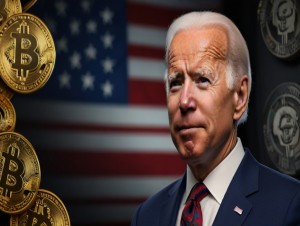The dialogue surrounding blockchain-based gaming has been deafening. With its lofty promises of upending the gaming industry’s status quo and providing players with unparalleled autonomy, it’s no wonder that blockchain enthusiasts are singing its praises.
Yet, the glaring question remains unanswered: If it’s so transformative, why aren’t we all reveling in this new age of gaming? Could the answer lie with gamers – the very group this revolution aims to empower?
Gamers vs. Blockchain: An Unexpected Standoff
Every corner of the internet, especially gaming subreddits, is filled with opinions about blockchain, cryptocurrency, and NFTs. And let’s be brutally honest here: Not all of it is good. In fact, most of it is downright disdainful.
A browse through these platforms paints blockchain as the door-to-door salesman of the digital era, promising the moon but delivering, well, knife sets. Gamers, traditionally seen as early adopters of new tech, have become the very wall that blockchain needs to scale. But is their resistance valid?
For the uninitiated, the blockchain realm parades itself as a bastion of transparency, equality, and genuine ownership. Yet, it’s impossible to ignore the parade of scams, hacks, and questionable influencers muddying its reputation.
How can a world teeming with “get-rich-quick” schemes and dubious dealings convince gamers that blockchain gaming isn’t just another con?
Why The Gaming Industry Needs Blockchain
Behind the scenes of your favorite games, centralized powerhouses control the strings. The whims and fancies of these developers and publishers directly shape and shift player experiences. Take, for instance, the infamous World of Warcraft incident.
A seemingly arbitrary decision to nerf a character’s abilities might seem trivial to outsiders. Yet, for players deeply invested in the game, such unannounced changes can be a source of immense frustration.
They serve as stark reminders of the unchecked power game developers possess, which has ripple effects on players who have no voice in these decisions.
And then there’s the Madden NFL 23 fiasco. Imagine spending hours, days, or even months building your dream team, only for a glitch to erase all your progress.
An error like this isn’t just a minor inconvenience. It’s a betrayal. In a world where blockchain technology exists, this heartbreak could have been completely avoided.
Blockchain’s decentralized nature, which saves data across multiple nodes, ensures that even if one fails, the system remains unaffected. Such resilience translates into trust – a currency the gaming world desperately needs.
The World of Warcraft franchise struck again, this time, leaving millions of Chinese players in the lurch. A sudden termination of Blizzard’s operations in China starkly highlighted the vulnerability of centralized gaming systems.
It wasn’t merely about losing a game. It was about losing communities, connections, and virtual homes. With blockchain, the chains of licensing agreements and corporate disputes would crumble, allowing players to truly claim their gaming worlds.
Let’s also discuss the true ownership blockchain promises. Currently, the in-game assets that players grind for or purchase outright aren’t really theirs. A server glitch or a sudden change in game policy can snatch them away.
Blockchain-based gaming can challenge this norm. Tokenized in-game assets on blockchain mean that players genuinely own their assets. Imagine transferring a weapon from one game to another, breaking the barriers of individual game ecosystems.
Lastly, the game-changer (pun intended) – provable fairness. Trust in the traditional gaming world is a gamble. Players hope that game developers ensure fairness and transparency.
But with blockchain, hope is replaced by certainty. Outcomes in blockchain games, be it a dice roll or loot box spawn, are governed by visible smart contracts. Every action, outcome, and transaction is recorded and verifiable. The playing field isn’t just leveled; it’s transparent.
So, is the gaming industry’s hesitancy toward blockchain warranted? Perhaps, given its current flaws and reputation. Yet, the potential of blockchain gaming cannot be denied.
It’s not about merely “leveling up” our current gaming systems. It’s about reconstructing them to return power to the players. So, to all the skeptics, including my younger brother Jake, here’s a critical thought: The game’s future might just be worth the gamble.





